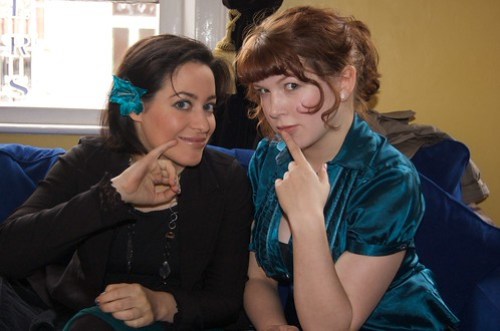Yesterday afternoon I was waiting for my date and she was running really late. But to be honest she did text me to say she was running very late although I was already at the location we said we would meet. It didn’t matter because I was laughing my ass off (yep ROFL) reading my kindle while sipping some very nice teas (guess where I was).
The thing I was reading was my personal Read it later list…was The Different Types of People There Are on the Internet.
I did tweet it from my kindle but Amazon in there wisdom doesn’t support self publishing very well, so you got some quotes but not much else.
This one had me in stiches…
People Who Are Social Media Evangelists
With their dogmatic approach and cries of ‘Social media, therefore world peace’, the self-proclaimed evangelist is deft at confusing causation and correlation to squash a complicated world into their Twitter-tinted narrative.
Where religious fervor was harnessed to defend the church from barbarians, the social media expert rabidly protects their beliefs, as they plunge their faith into herd mentality safe in the knowledge that they are part of a greater good that will heal the world and keep them safe.
Despite claiming to espouse groupthink and the importance of social diversity, the social media evangelist will only speak to other like-minded scholars of the internet.
Pragmatism and empiricism are tools of the crusty old world order. The social media expert is a master of narrativisation and the extrapolation of the anecdotal or rare event into a universal law.
Like 1984’s Big Brother, the social media lover is a deft switcher of allegiances in the interest of the common good of social media. Writers and thinkers will be held up as messiahs before being cast off as pariahs for doing so much as questioning the accepted truths of social media.
Detractors are swatted aside with a derisory allegation that they ‘just don’t get it’, as the social media expert truly believes that reading Clay Shirky’s Here Comes Everybody elevates them to an ivory tower of intellectualism that is unscalable by any other human being, regardless of their superior qualifications or proven track record.
There is an irony in almost all the pillars of truth accepted by the social media evangelist. Yet like the Stoics before them, they hold steadfast, as there is nothing you can subject evangelists to that will cause them to question their unwavering faith.
Most importantly, the social media evangelist will spray empty aphorisms and appropriated language from economics and social sciences all over their feeds and blog posts in an attempt to intellectualise the fact that they just like pratting about on Twitter and Facebook all day.
via James Seddon
The reason why this had me in hysterics was because we all know people like this. Heck I’ve been known to say "… just don’t get it" quite a few times from my ivory tower of intellectualism (*smile*). If your slightly offended by this description, theres this version which is pretty much the same but more subtle.
Its also worth mentioning this is all a internet take (remix) of what was written on the stranger. I’ve been researching the stranger for #geekstalksexy part 3, after my exwife suggested I go check it out.





